Your Complete, Insiders Guide to Local Traditions, Zhong Yuan, and the Ghost Festival
There’s a month dedicated to ghosts..?!
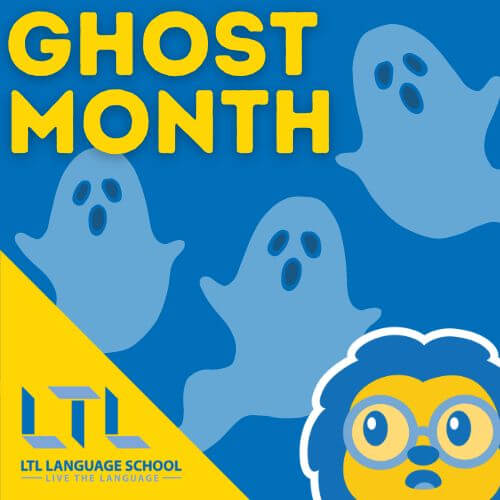
The belief in the afterlife and spirits exists universally in different cultures and societies.
Because of this, naturally, relevant celebrations, festivals, and customs come into being.
👉 Western Halloween and the Mexican Day of the Dead are both famous examples.
However, in addition to one-day Halloween and the two-day “Day of the Dead”, do you know that Taipei even has a “whole month” dedicated to just ghosts?
Ghost Month || Intro
Ghost Month || Origin
Ghost Month || Redeem the Souls
Ghost Month || Why Zhong Yuan?
Ghost Month || What is 好兄弟?
Ghost Month || Taboos
Ghost Month || Offerings
Ghost Month || Other events
Ghost Month || Animation movies
Ghost Month || Core values of the festival
Ghost Month || FAQs
Ghost Month in Taipei
The so-called Ghost Month takes place throughout July of the lunar calendar.
It is also known as the Hungry Ghost Festival.
According to the solar calendar system, it usually begins in August and ends in September.
Taiwan Ghost Month – Start Date
23rd August 2025
27th August 2026
16th August 2027
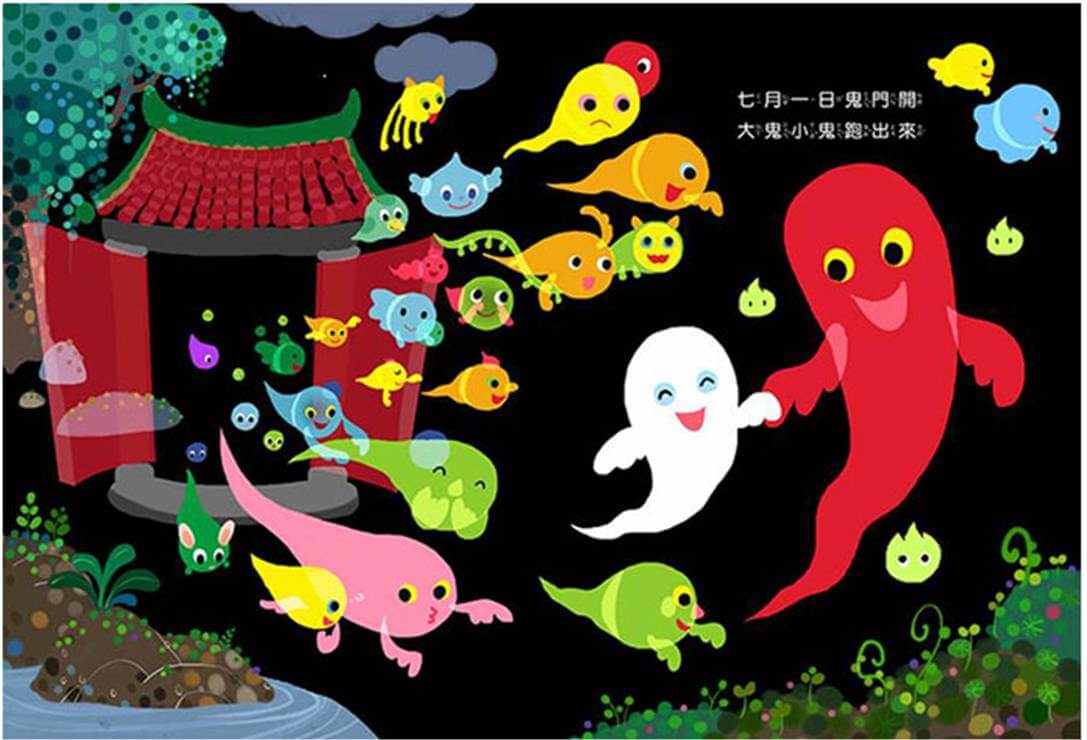
Local people believe that the ghost door opens on the first day of Ghost Month, and closes on the last day.
Ghosts will come to the mortal world to wander around and go back to underworld on the last day.
As a result, we set altars and prepare oblations on the first day to welcome their arrival and on the last day to conduct a farewell ritual for them.
However, the greatest celebration is on July 15th of the lunar calendar, which is known as 中元節 Zhōng yuán jié (Zhong Yuan Festival or Ghost Festival) or 七月半 qī yuè bàn.

Aunt Tiger || Taiwan Legend and Nursery Rhyme
The story of Aunt Tiger is one of the shared memories of many Taiwanese. They also recognise it as one of the most terrible nightmares of their childhood.
The Origin of Zhong Yuan Festival
Zhong Yuan Festival is actually a mixture of three different religions:
- Taoism
- Buddhism
- Believers in an afterlife, ghosts, and reincarnation.
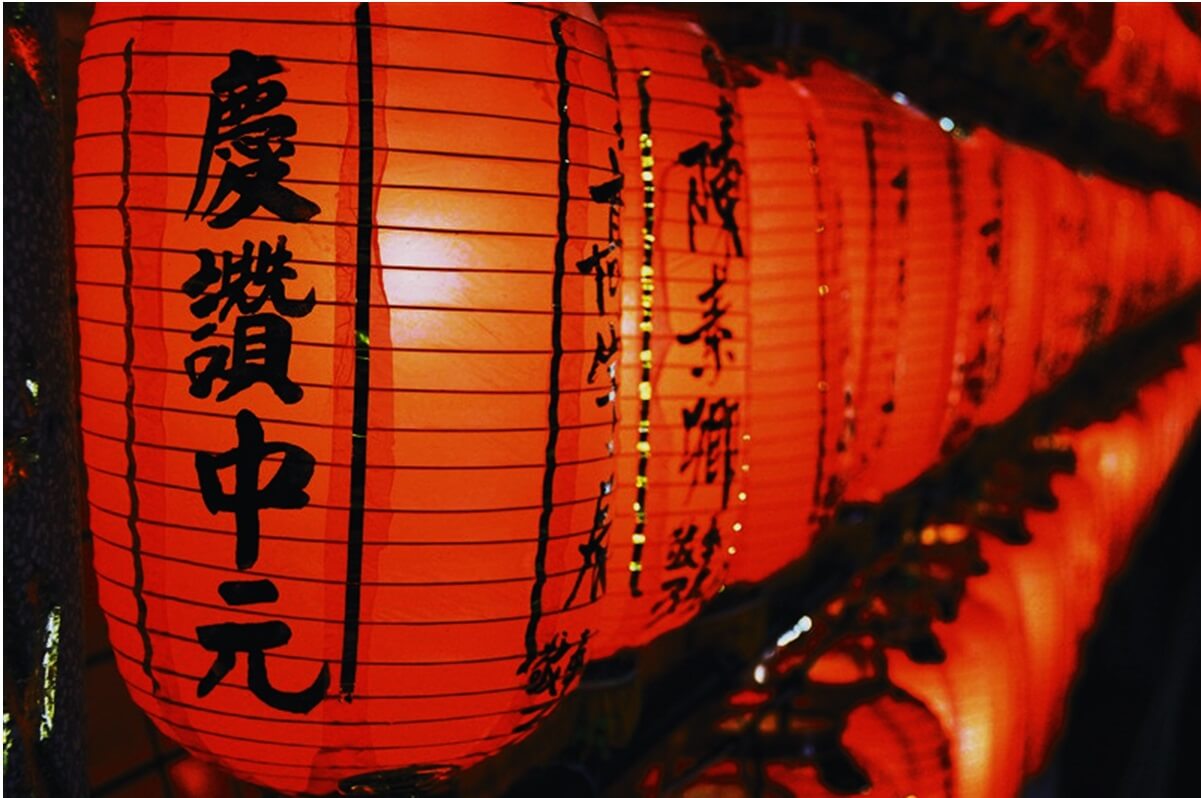
Taoism Legend
Legend has it that July 15th is the birthday of a Taoism god 地官大帝 Dì guān dàdì.
He is regarded as the God to reduce the sins of the suffering ghosts and set them free. On his birthday he will remove the sins of all the ghosts.
Thus, believers worship him for redeeming the souls of their families who have passed away from purgatory.
Buddhism Legend
The legend of Buddhism is from the story 目蓮救母 “Ven. Maudgalyayana rescues his mother” (Maudgalyayana is Indian Sanskrit while in Mandarin it is translated as Mulian).
Ven. Maudgalyayana, one of Buddha’s closest disciples, one day through meditation saw that his mother, who passed away a few years ago, was suffering in the realm of the hungry ghost.
His mother told him that she was incarnated into a hungry ghost because she did many bad things in her pre-existence thus had to receive punishments.
Ven. Maudgalyayana felt sorry for her and tried to offer her some food.
However, whenever she was going to swallow, the food turned into flames. She couldn’t eat.
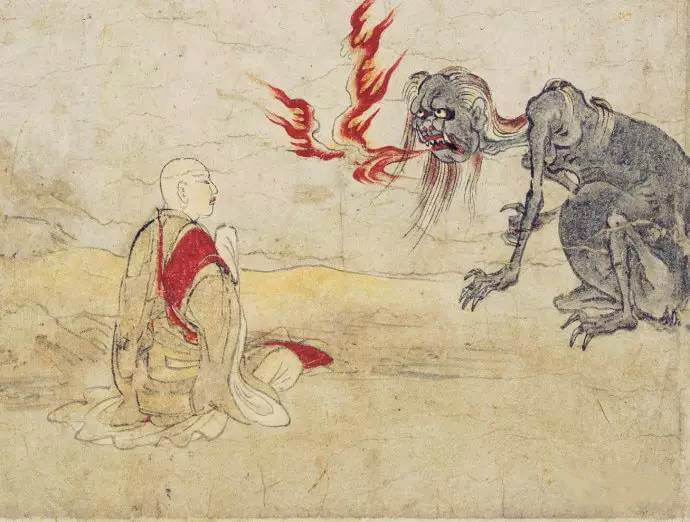
Ven. Maudgalyayana was so sad and helpless that he turned to Buddha for help.
Buddha told him that he should rely on the help of many spiritual cultivators to save her.
In order to invite them to save his mother, he must pay his utmost respect to every monk.
On the day of July 15th (of the Lunar calendar), Ven. Maudgalyayana, personally carried a basin of water to everyone to let all the monks wash their hands.
Later, he offered a hearty meal and delicious fruit to not only Buddha but also all the monks.
Everyone reverently prayed for Ven. Maudgalyayana’s mother.
In unity there is strength, it works not only on his mother but also all the suffering beings in the hungry ghost realm. They are finally freed.

5 Traditional Chinese Musical Instruments You Should Know + More
Musical Instruments in Chinese || We’re going to go through 5 Chinese musical instruments that we think you should all know.
Zhong Yuan Festival: 中元節 (zhōng yuán jié)
Redeem the Souls
In a nutshell, the aim of Zhong Yuan Festival is to deliver those suffering and wandering souls from purgatory by conducting charity acts for them.
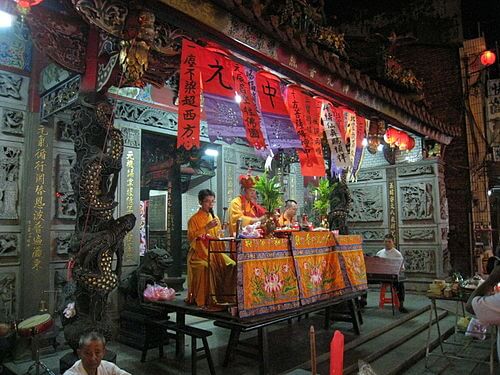
The more good deeds and merits the living people do, the more powerful the amnesty and the redeeming will be.
Thus the souls can be released and reincarnated into another being. This is the so-called idea of 超渡 chāo dù in Taoism and Buddhism.
普 pǔ can mean wide-ranging and universal.
Thus 中元普渡 Zhōng yuán pǔ dù refers to the scale-up ceremony for rescuing all the ghosts universally on Zhong Yuan Festival.
Why is it called Zhong Yuan?
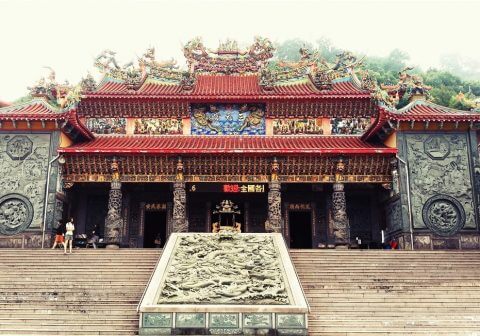
Han people generally call January 15th (of the lunar calendar) 上元 Shàng yuán, therefore there’s 上元節 Shàng yuán jié.
Maybe you haven’t heard of it, but what if we tell you that actually, it is the so-called 元宵節 Yuánxiāo jié, when there are lots of lanterns and fireworks?
Likewise, they also had July 15th as 中元 Zhōng yuán and October 15th as 下元 Xià yuán.
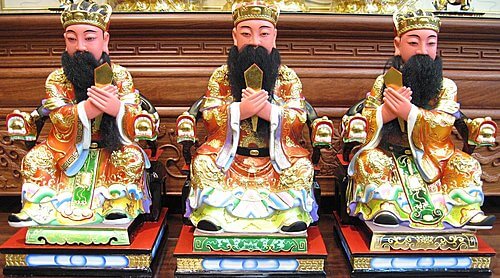
If we go into more details, it’s actually relevant to the religion of 三官大帝 Sān guān dàdì of Taoism and folk believers.
三官 refers to 天官 Tiān guān, 地官 Dì guān and 水官 Shuǐ guān, which correspond to 上元, 中元 and 下元. 天官 is the belief from the sky, people believe that he gives blessing.
地官 is the belief in the land. He is regarded as the God to reduce people’s sins.
水官 is about the belief of water, the God that solves disasters in the mortal world.
What is 好兄弟?
You may hear many people use 好兄弟 hǎo xiōngdì (good brothers) as the euphemism of 鬼 guǐ (ghosts).
It’s due to the fact that they don’t want to offend those souls.
Besides, calling them by 好兄弟 also illustrates the sympathy and the wish to get along well with them.
Taboos of Ghost Month
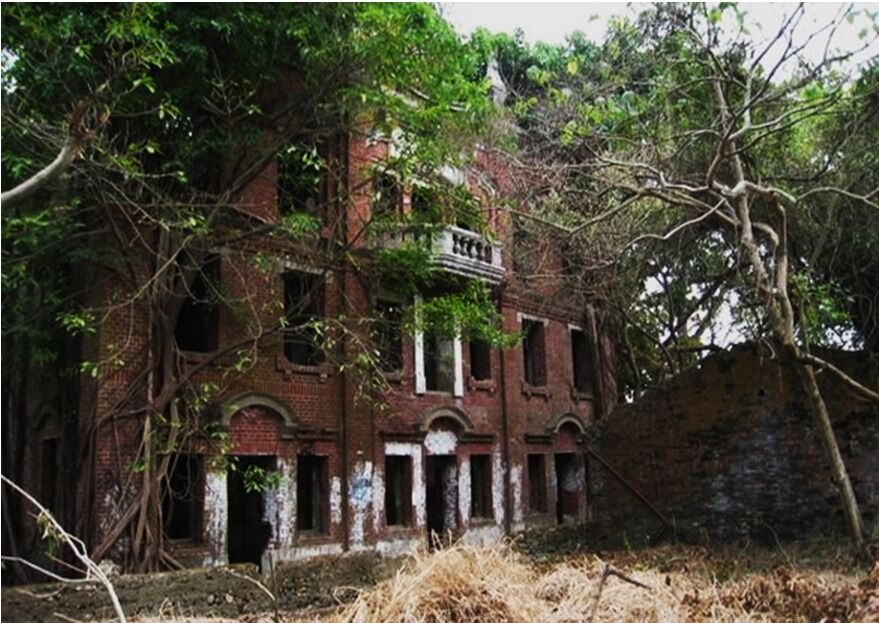
People believe that they should avoid going to rivers, beaches or ponds during Ghost Month.
Graveyards, remote mountain areas, abandoned buildings and places where there are not many people should also be avoided.
Furthermore, people shouldn’t blow whistles at night since it’s easy to attract souls.
Hanging bells on the windows or bedsides is regarded as taboo as well because they make a sound like the bell used by Taoist priests when summoning ghosts.
Getting married, buying cars, or buying houses are also things that people will prevent themselves from doing during Ghost Month.
Of course, nowadays people are not as superstitious anymore.
Many of them still travel to wherever they want without the consideration of these taboos.

Chinese Food Culture // The 8 Great Chinese Cuisines
Chinese cuisines have typically been divided into ‘Eight Great Cuisines’ as a means of simplifying this vast and complex tradition.
Offerings During the Zhong Yuan Festival
On the day of the Zhong Yuan Festival, people set altars outside their front doors.
Of course, incense sticks and paper money for ghosts are indispensable.
Furthermore, according to tradition, people should prepare three kinds of meat (三牲 sānshēng): chicken, pork and fish, and four kinds of fruit (四果 sì guǒ) – literally meaning ‘four fruit’.
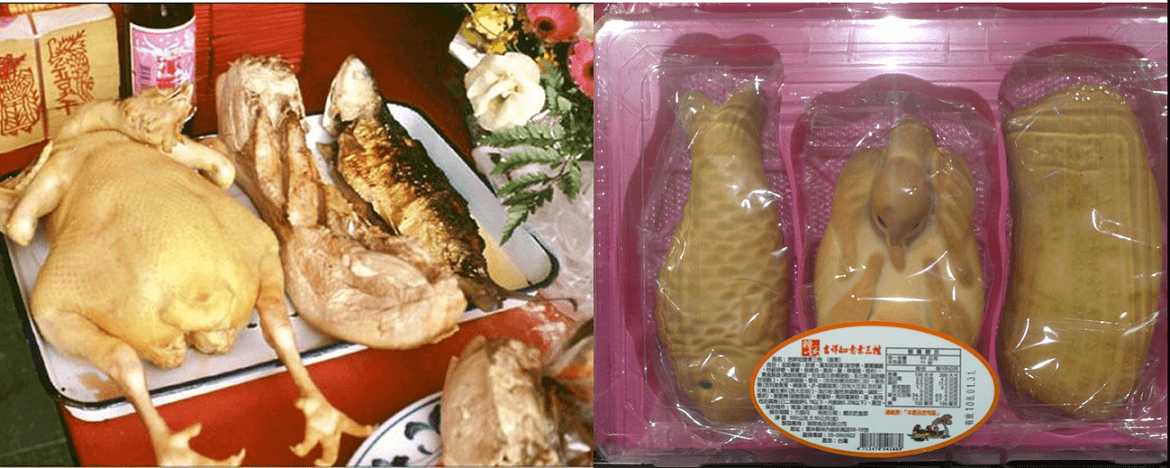
However, some argue that actually, 四果 doesn’t mean four kinds of fruit.
It may refer to fruit of four seasons (in other words, seasonal fruit) or 素果 sù guǒ (vegetarian fruit, since in the past some fruit were regarded non-vegetarian).
But the most important fact to remember is that the number of each fruit can only be an odd number.
PLUS, another thing to remember is that bananas, plums, pears and pineapples can’t be on the altar together. If you pronounce them all together in Taiwanese, it sounds like “invite many of you”.
It will certainly be a problem if many ghosts come to your house along with their friends!
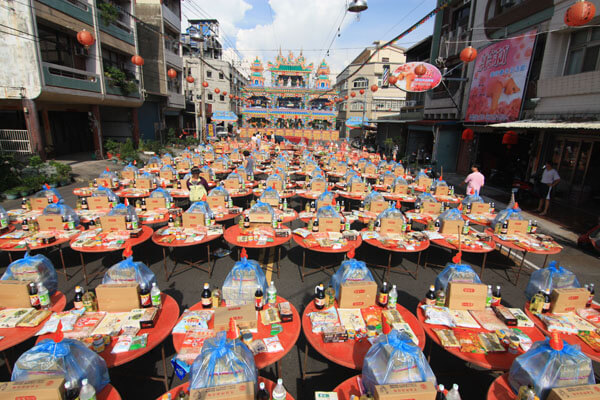
Additionally, rice, dishes, sticky rice cakes, cups of tea and sake, a basin of water and a towel are also required.
Nowadays, you can even see people prepare all kinds of oblations, from beverages, cookies, to even packages of instant noodles and cigarettes.
Far from just relevant to homes, you can also see companies, stores, schools, governmental offices and communities setting altars in front of their doors and worshipping the ghosts.
Temples or religious sites will even hold Pudu and ceremonies and invite people to join them.
There will be numerous tables filled with food and oblations altogether, just like a grand banquet for hungry ghosts.
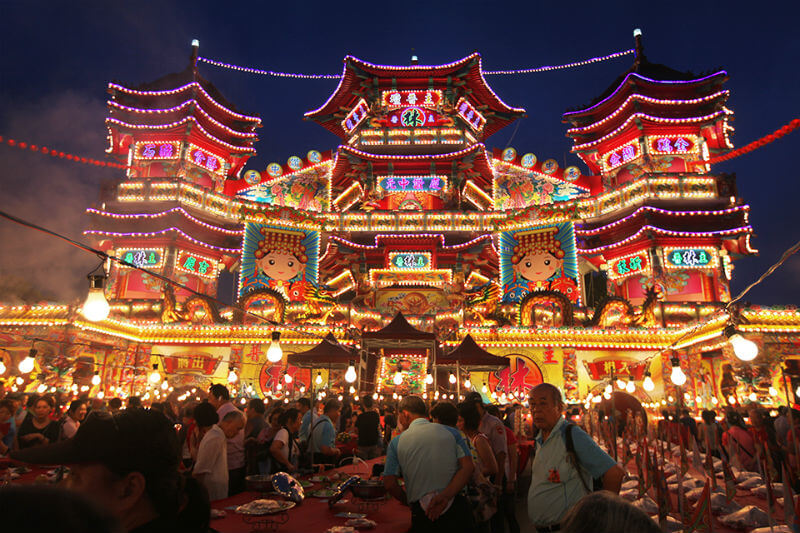
Other Events During Zhong Yuan Festival
According to different customs, each region outside of Taipei has developed different relevant activities and traditions.
搶孤 Qiǎng gū (Pole-Climbing Competition)
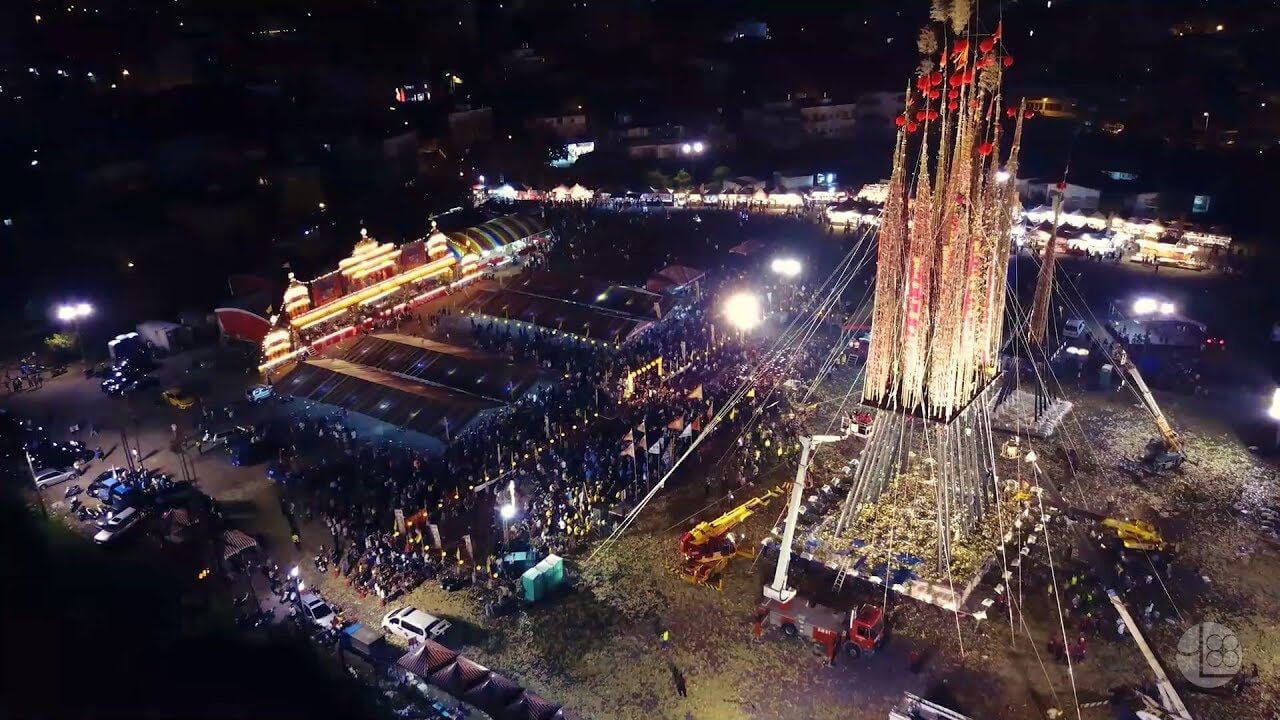
Yilan County (宜蘭) and Pingtung County (屏東) are famous for this competition.
It originated from the custom of snatching the oblations after the huge banquet for hungry ghosts.
Another version is that people act like hungry ghosts to snatch the oblations in order to entertain the souls of their family.
Take Yilan for instance, people will build a high and huge shed of 42 meters and 46,000 kilograms. The shed is divided into three parts.
The lower parts consist of 16 pillars of 13 meters with 75 litres of butter on the surface.
The middle part is a flat stage while in the upper part, there are 13 pillars standing at 30 meters with oblations tied on them and a flag on the top.
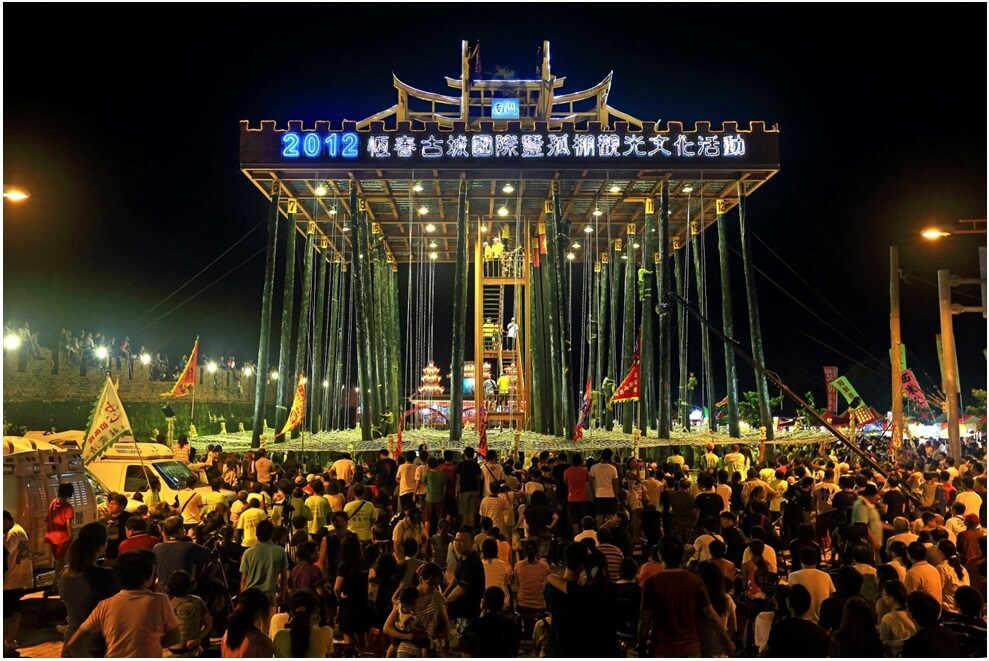
The teams which participate in the competition should have eight people.
Team members need to help one another to climb up the pillars and get the flag on the top.
The team which gets the flag first will win the competition. The winner can not only receive a prize but also be blessed for the whole year.
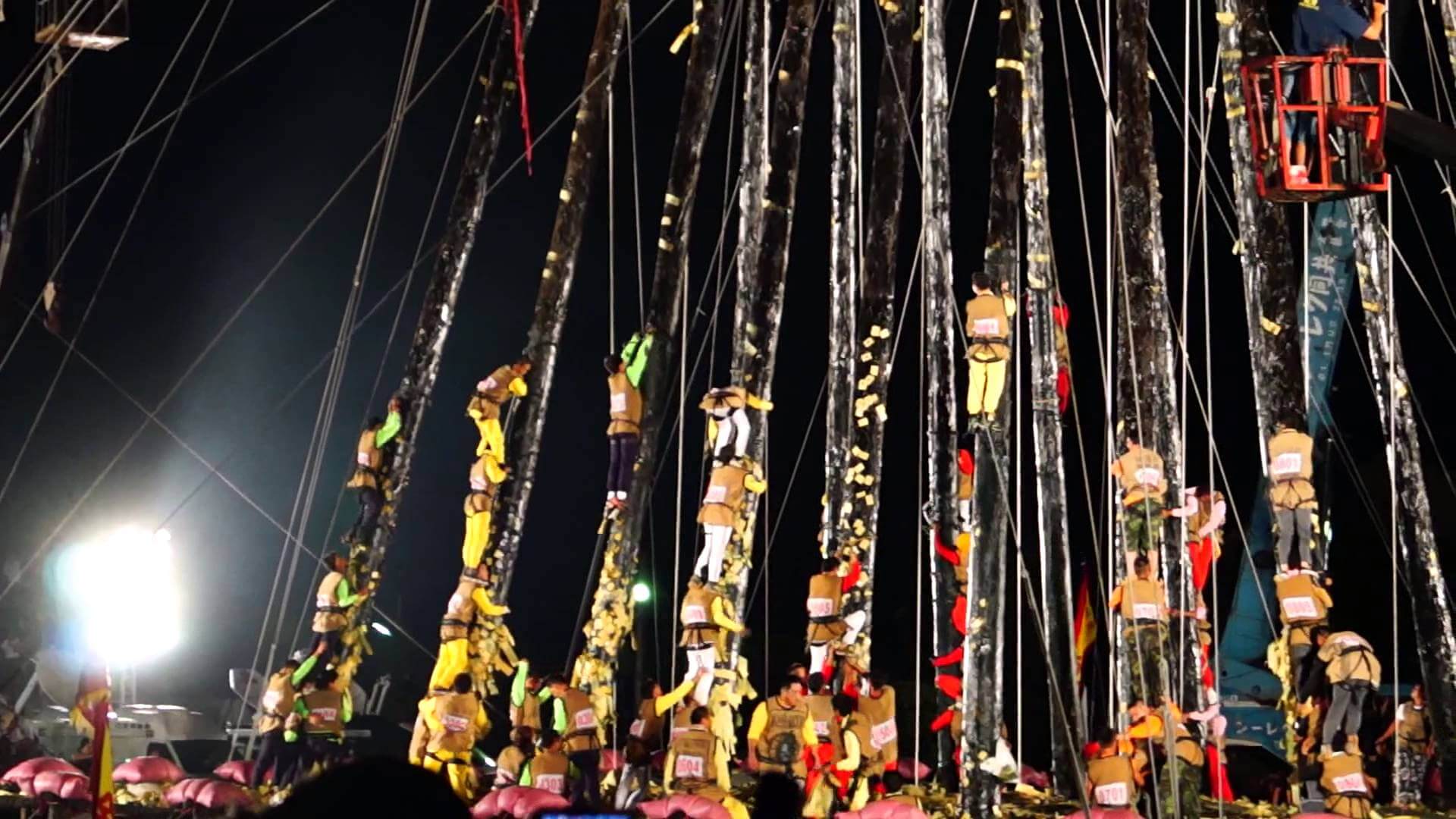
Nowadays, it has transformed into a rather international festival from merely a local pole-climbing competition.
The government actively invites people from all over the world to participate in this special event.
There are also foreign teams taking to the challenge every year.
放水燈 Fàng shuǐdēng (Float water lanterns)
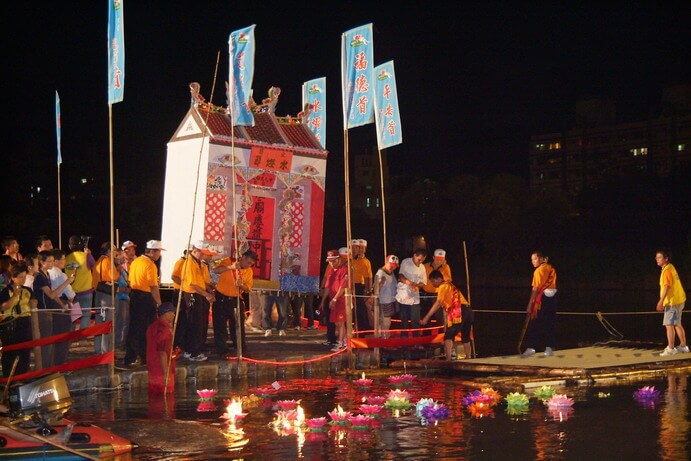
This is another famous activity of the Zhong Yuan Festival originating from the Buddhism ritual, different from 搶孤, which has its origin in Taoism.
You may also see it in other Asian countries which are under the influence of Buddhism, like Japan, Korea, Thailand and Vietnam.
This event involves simply floating paper lanterns down a river or sea. In Taiwan, lanterns are usually made in the form of a house or a temple.
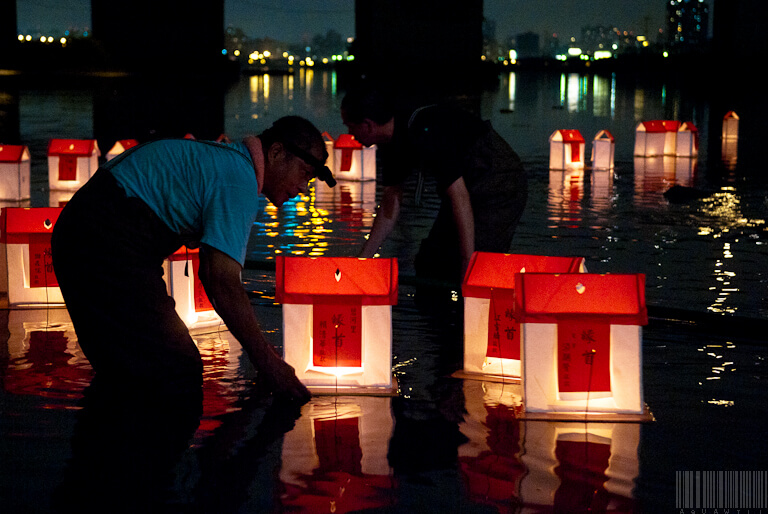
Their size ranges largely, some of which can even accommodate a person. In order to let them float on the water, people put them on a raft made of bamboo or wood.
There are supposed to be a three-coloured flag on the lanterns, which is called 普渡旗 pǔdù qí.
People will write some honorifics and their names on it to let the ghosts know who the donors are. Sometimes they will just write the information directly on the lanterns.
The purpose is to light up the waterway and invite spirits in the water to join the Zhong Yuan Festival banquet.
It is believed that the further the lantern floats, the greater the blessing the donor will receive. This is because it means that more ghosts will help.
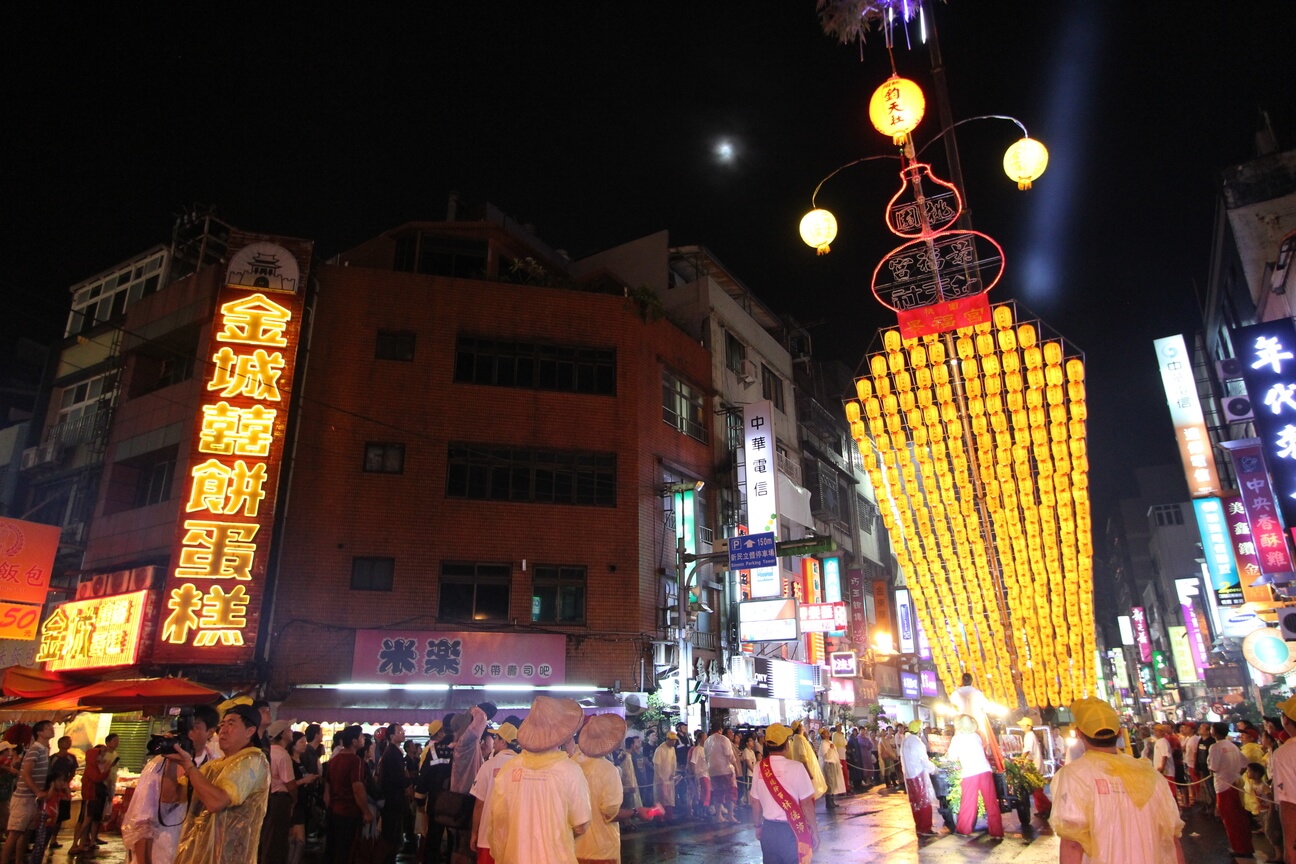
Moreover, people also make 水燈排 shuǐdēng pái, which is the assembly of numerous lanterns.
They arrange those lanterns in a latticed bamboo frame, then place them vertically on floats in the Zhong Yuan Festival parade, which is very spectacular and eye-catching.
People can join the event in Keelung (基隆), Yilan (宜蘭) and Taoyuan (桃園), which are three of the most famous counties for this celebration.

Double Ninth Festival in China || Origins & History of Chongyang Festival
The Ultimate Guide to the Double Ninth Festival || 2024 Date The Double Ninth festival is an important festival not only in China but also in Japan and Korea, as well as around the world! You might have heard of…
客家義民祭 Hakka Yimin Festival
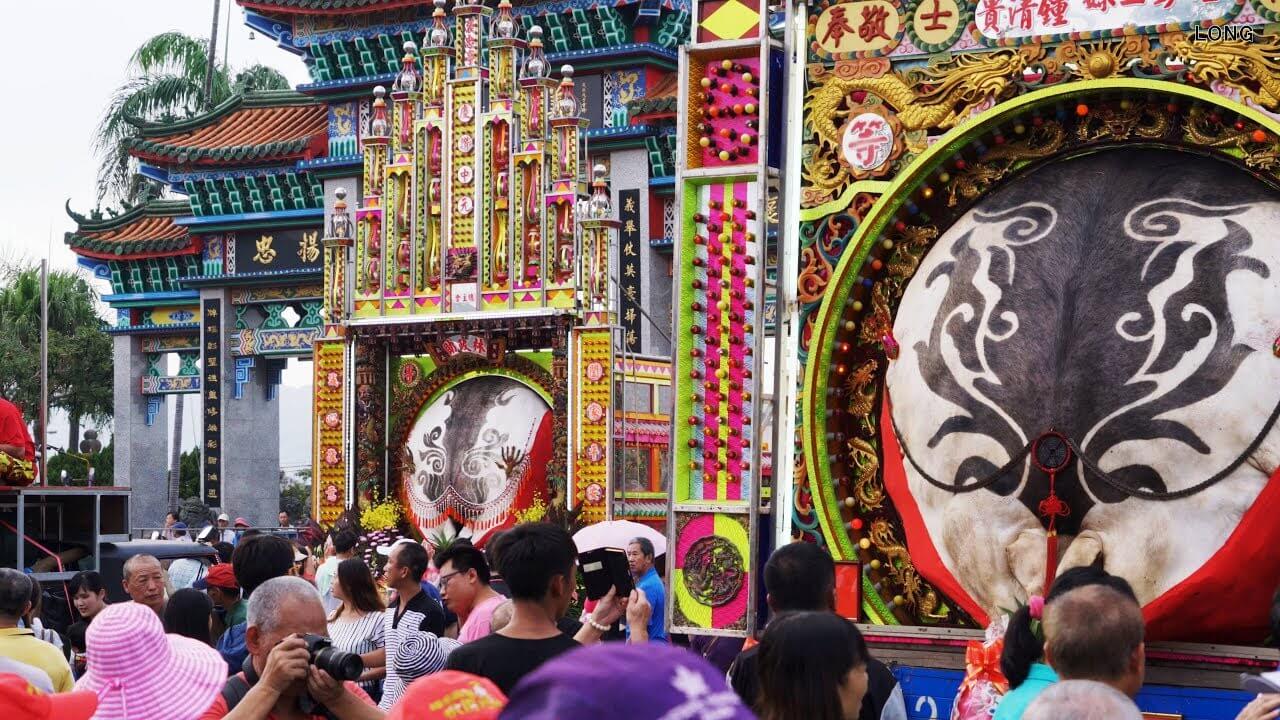
Back in Qing Dynasty, Hakka people united and formed their own military self-defence force, which was called 義民軍 Yìmín jūn.
They not only defended their hometown, but also assisted the Qing government to maintain order and safety in fighting against the rebel army.
Qing government thus built temples to honour those who sacrificed their life in the battles.
As a result, the belief of 義民爺 Yìmín yé has become a Hakka-specific religion from then on.
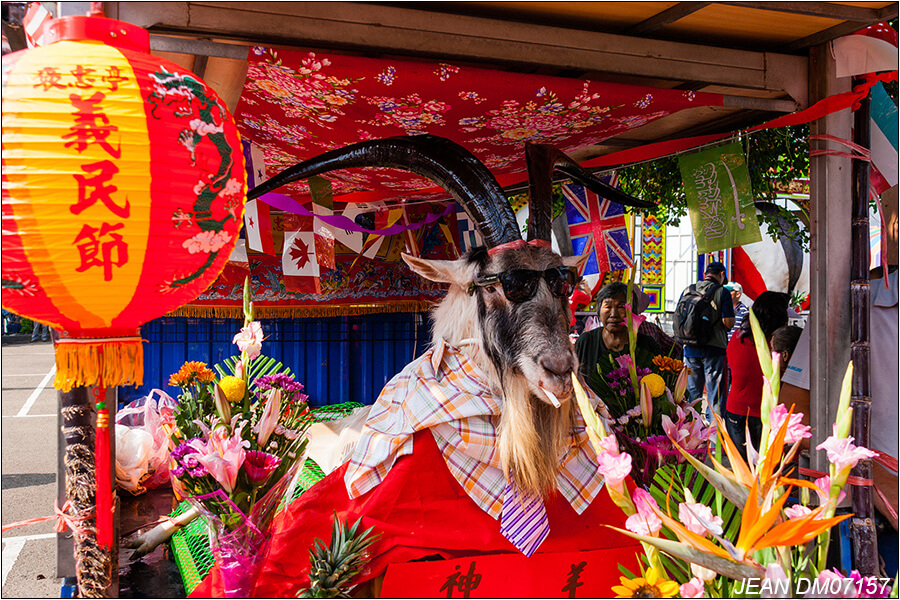
Hsinchu County (新竹) is famous for its Hakka community.
The annual Yimin Festival is also a highlight of Ghost Month, which is usually held on July 20th of the lunar calendar.
People prepare oblations and altars for a grand puja to placate the souls of those loyal force members and worship them with their highest respect.
The most interesting event is supposed to be the competition of “god pig” and “goat horn”.
The pig which weighs the most will win the contest and be offered to God, which is the utmost honour for the owner. Goats’ owners also compete to see whose goat has the longest horns.
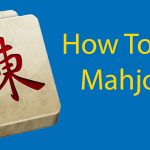
An Introduction to Mahjong || The Experts Guide on How To Play Mahjong
Mahjong is a fun way to learn Chinese characters and numbers, and what they signify for language, history and culture. But how to play Mahjong?
Animation about the Ghost Month
魔法阿嬤 Grandma and Her Ghosts (1998)
If you are interested in Zhong Yuan Festival, you definitely cannot miss the Taiwan-made animation 魔法阿嬤 Mófǎ ā mā (Grandma and Her Ghosts).
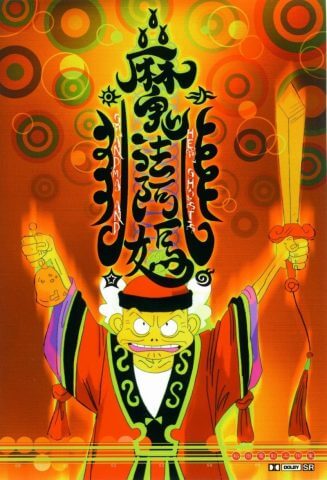
The literal translation is “Magic Grandma” since in Taiwanese 阿嬤 means grandmother.
It was released in 1998 when Taiwan still produced rather poor animations compared to those today!
The production team went through a lot of hardships during the process, but they still went through all the obstacles and finished this incredible animation.
Although from the modern perspective the picture quality isn’t that exquisite, Grandma and Her Ghosts successfully presents the most authentic culture and human touch of the Taiwanese local.
The story took place in the small fishing village of Keelung (基隆).
Through animation, the audience can not only understand more about the customs of the Zhong Yuan Festival, but also realize how Taiwanese people get along with and understand ghosts.
For Taiwanese, it’s a film which scares them in their childhood but touches them to make them cry and laugh during their adulthood.

Dragon Boat Festival in Taipei || The Complete Guide 🐉
The Dragon Boat Festival 端午节 (duān wǔ jié), also called Double Fifth Festival, is celebrated on the fifth day of May of the lunar calendar.
The Core Values of Zhong Yuan Festival
This distinguishes Zhong Yuan Festival from other festivals related to ghosts around the world.
Unlike Halloween (when people use scary costumes to scare away the spirits) and Day of the Death (when people celebrate together with the dead), Zhong Yuan Festival reveals the sympathy and mercy of people towards all the ghosts whether they know them or not.
It’s about selfless help, care and blessing.
Besides, it reflects the values of the society, which is established on the praiseworthy trust between people, also people and ghosts.
It is believed that ghosts won’t do us any harm and will even help us in return if we treat them well first.
Still wondering if you should believe all this about Ghost Month or not? Well, let me just give you a piece of advice, which is also a famous Chinese idiom:
寧可信其有,不可信其無。Níngkě xìn qí yǒu, bùkě xìn qí wú.
It is better to believe that it exists than it does not.
Ghost Month || FAQs
When is Ghost Month?
The so-called Ghost Month takes place in the entirity of the July of the lunar calendar.
It usually begins in August and ends in September.
What is Zhong Yuan Festival?
In a nutshell, the aim of Zhong Yuan Festival is to deliver those suffering and wandering souls from purgatory by conducting charity act for them.
What to say Zhong Yuan Festival in Chinese?
中元節 zhōng yuán jié
Are there any taboos that we should be careful of?
People believe that they should avoid going to rivers, beaches or ponds during the Ghost Month.
Graveyards, remote mountain areas, abandoned buildings and places where there are not many people should also be avoided.
Want more from LTL?
If you wish to hear more from LTL Language School why not join our mailing list.
We give plenty of handy information on learning Chinese, useful apps to learn the language and everything going on at our LTL schools!
Sign up below and become part of our ever growing community!
BONUS | Want to study the local Taiwanese dialect known as Hokkien? We provide Hokkien classes in person and online.
⭐ Download our free ebook, your starter pack of essential Mandarin learning resources!


 Hi, my name is Greta. I am from Italy and I work as a student advisor at our Taipei school.
Hi, my name is Greta. I am from Italy and I work as a student advisor at our Taipei school. Hi, my name is Manuel! I am from Spain and I am a Student Advisor at LTL. I’m now based at our Seoul School after living 3 years in Taipei.
Hi, my name is Manuel! I am from Spain and I am a Student Advisor at LTL. I’m now based at our Seoul School after living 3 years in Taipei.
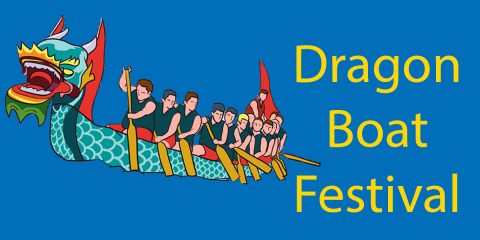
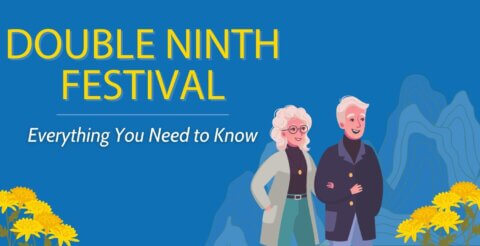
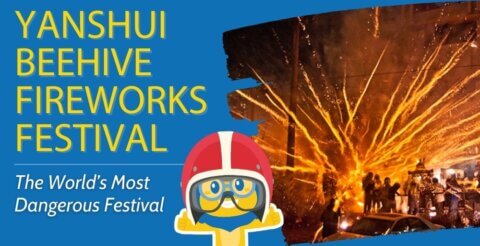


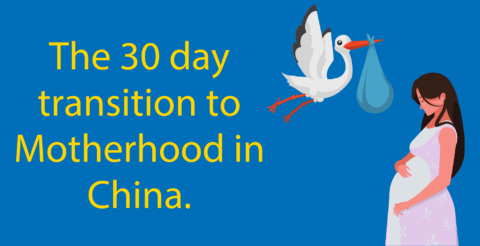
12 comments
[…] Ghost Month and Zhong Yuan Festival – Part one […]
[…] regions. The factors which influence and cause the variations may include geography, weather, culture, history, policy, generation, social composition, local dialects, […]
Nice list of traditions
👍
[…] Ghost Month (鬼月) or Zhongyuan Festival (中元節) is a period of time in the Lunar Calendar when the Ghost Gate opens in Taiwan and spirits roam the country. With traditions rooted deep in Daoism and Buddhism, many local Taiwanese look upon this festival with a sense of uneasiness. Rather than the spirits being those of loved ones, many believers go to painstaking lengths to avoid and appease the wandering souls. […]
[…] https://ltl-taiwan.com/ghost-month-zhong-yuan-festival/ […]
This post beautifully captures the essence of Ghost Month and the Zhong Yuan Festival! I love how you explained the significance of honoring ancestors and the customs involved. It's fascinating to see how these traditions blend spirituality and community. Can't wait to try some of the festive foods you mentioned! Thank you for sharing such enlightening insights!
I loved learning about the significance of Ghost Month and the Zhong Yuan Festival! The traditions and rituals really highlight the deep cultural connections in Taiwan. It's fascinating how these observances honor ancestors and remember loved ones. Thank you for sharing such insightful information about these unique customs!
We're happy to here you enjoyed the article! 🙂
The descriptions made me feel like I was experiencing the festivities firsthand. Can't wait to learn more about the other unique celebrations in Taiwan!
I loved reading about the traditions of Ghost Month and the Zhong Yuan Festival in Taipei! It’s fascinating how these customs reflect the deep cultural heritage and beliefs surrounding the ancestors. I can't wait to experience the festivities and rituals firsthand during my next visit!
What a fascinating insight into the traditions of Ghost Month and the Zhong Yuan Festival!